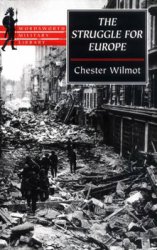The War Industries Board (WIB), a regulatory agency set up to manage the economy during World War I, had more powers than any other government agency in the United States to that date. In practice, however, the board did not become a centralized regulatory agency that rationalized the economy. Instead, the WIB became a partner with businesses to coordinate the production and distribution of war materials in the American economy.
The WIB was established in July 1917 to coordinate government purchases of war materials. After months of ineffectiveness, President Woodrow Wilson reorganized it in March 1918 and appointed Wall Street financier
Bernard Baruch as its chairman. Under the leadership of Baruch, the WIB extended its reach over much of the American economy. Dominated by industrialists, the board included representatives of major economic interests in the United States.
The WIB matched the demands of war production with the needs of the armed forces, the European allies, other war organizations, and consumers. In some cases, the board persuaded corporations to cooperate voluntarily to meet the priorities of war production. The WIB established 57 committees, which were organized by commodities. The Commodity Committees negotiated for the U. S. government with the War Service Committees, or trade associations, which represented the suppliers. The committees shared information that would assist companies in planning for war production.
Despite its regulatory powers, the WIB did not come to embody the state control of the economy that some Progressives had been advocating in the early 20th century. First, mismanagement and inefficiency plagued the board. Second, the power of the federal government over corporations was limited. The government was dependent on business cooperation to support the war effort. In addition, the federal government needed the skills and knowledge of business leaders to manage production and distribution in the American economy.
The experience of the WIB illustrated to many leaders of government and industry that a cooperative relationship between the public and private sectors was beneficial to both. In fact, Baruch saw himself as a partner with business. The WIB sought to promote the private powers of business rather than restrict them or limit business profits. For many business leaders, profits came before patriotism in their decision making. In fact, major corporations earned huge profits with the help of the WIB.
The Great War had already ended by the time war production peaked under the coordination of the WIB. Immediately after the war, the government dismantled the regulatory structures that had been set up to manage the economy. President Wilson ordered the WIB to end its activities at the start of 1919. Even though the powers of the WIB had been limited during World War I, it served as a model for the National Recovery Administration, an early New Deal agency set up to facilitate an economic recovery during the Great Depression.
Further reading: Robert D. Cuff, The War Industries Board: Business-Government Relations during World War I (Baltimore: Johns Hopkins University Press, 1973); Ronald Schaffer, American in the Great War: The Rise of the War Welfare State (New York: Oxford University Press, 1991).
—Glen Bessemer




 World History
World History









